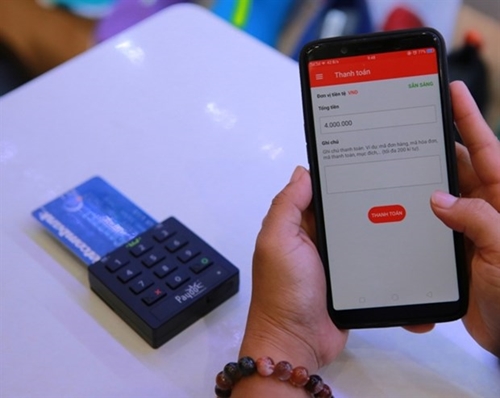Besides, the central bank was also hastening procedures to propose the Government the issuance of amendments to Decree No.101 on accelerating cashless payments.
    |
 |
|
The mobile money pilot project has been submitted to the Prime Minister for approval, according to the central bank. (Photo brandsvietnam.com) |
Mobile money allows mobile subscribers to use their telecommunication accounts to make payments up to a limited value.
Last year, three big telecommunications service providers in Vietnam – Viettel, MobiFone and VNPT – registered to added payment intermediary to their business lines, paying the way for participating in the mobile money market.
In Decree No.11/CT-TTg issued in early March about solutions to remove difficulties for production and business to cope with the COVID-9 pandemic, the PM asked the central bank to propose the mobile money pilot project for approval.
The use of mobile phone accounts to pay for goods and services initially got the PM’s approval in January 2019.
Minister of Information and Communication Nguyen Manh Hung previously said that mobile money created a 0.5 percent economic growth for countries which allowed it.
According to a report of the BIDV Training and Research Institute, mobile money was present in 90 countries with nearly 870 million registered accounts, 272 apps. and daily transaction revenue averaging 1.3 billion USD.
The institute said that it was necessary to develop a proper framework and enhance security for mobile money.
Vietnam had around 129.5 million mobile subscribers, around half using 3G and 4G, and 43.7 million or 45 percent of the country’s population using smartphones.
Many advanced technologies were being developed and applied such as biometric authentication, QR Code, tokenization together with the development of population database for electronic know-your-customer (e-KYC).
There was also significant room for mobile money in Vietnam with just around 63 percent of adults (from age 15) having bank accounts, the institute cited the central bank’s statistics as saying in November.
Mobile money would also help promote financial inclusion, the institution said.
The Government targeted to reduce the ratio of cash payments to less than 10 percent by the end of this year, from 11.33 percent in 2019.
Mobile money would significantly contribute to accelerating cashless payments in Vietnam where cash in circulation still accounted for 20 percent of the country’s gross domestic product.
Source: VNA